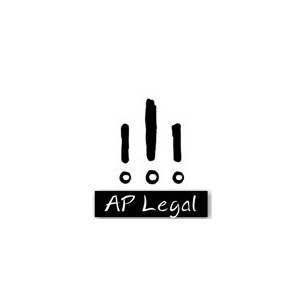Best Climate Change Law Lawyers in Fiji
Share your needs with us, get contacted by law firms.
Free. Takes 2 min.
Or refine your search by selecting a city:
List of the best lawyers in Fiji
About Climate Change Law in Fiji
Climate Change Law in Fiji refers to the collection of laws, policies, and regulations that address climate change issues within the country. Fiji is highly vulnerable to the impacts of climate change due to its geographical location as a Pacific island nation. Rising sea levels, increased frequency of severe tropical cyclones, and coastal erosion present significant challenges for Fijian communities. To combat these challenges, Fiji has developed a unique legal framework that integrates environmental protection, land management, adaptation, mitigation, and disaster risk reduction principles. The aim is to balance national development with climate resilience and sustainability.
Why You May Need a Lawyer
There are several scenarios where you may need help from a lawyer who specializes in Climate Change Law in Fiji. If you are a landowner facing erosion or displacement due to rising sea levels, or a business navigating new regulations related to carbon emissions and sustainable practices, legal guidance is essential. Public and private projects often require environmental impact assessments and compliance with new climate-related standards. Community groups working to protect traditional land, coastal areas, and natural resources may also require representation to engage with government policies or challenge proposed developments. If you are involved in renewable energy projects, adaptation efforts, or seeking compensation for climate-related losses, a lawyer can help you understand your rights, obligations, and the correct legal procedures.
Local Laws Overview
Fiji’s legal landscape for climate change is shaped by several key pieces of legislation, governmental policies, and international commitments. The Climate Change Act 2021 is the cornerstone law addressing climate change in Fiji, providing a comprehensive framework for adaptation, mitigation, carbon trading, and climate finance. This Act supports Fiji’s commitments under the Paris Agreement and other international protocols.
Other relevant laws include the Environment Management Act 2005, which sets requirements for environmental impact assessments and environmental protection, and the Disaster Risk Management Act, which addresses responses to disaster risks caused by climate events. Land law, particularly concerning customary land rights, plays a crucial role in relocation and land use planning due to climate change impacts. Fiji’s Voluntary Relocation Guidelines also provide direction for communities that need to be relocated because of the effects of climate change. Together, these laws and guidelines prioritize the protection of vulnerable communities, preservation of ecosystems, and achievement of sustainable development goals.
Frequently Asked Questions
What does Climate Change Law in Fiji cover?
Climate Change Law in Fiji covers laws, regulations, and government policies aimed at reducing greenhouse gas emissions, promoting climate resilience, managing environmental impacts, facilitating adaptation, and guiding relocation and land use in response to climate change.
How does the Climate Change Act 2021 affect businesses and individuals?
The Climate Change Act 2021 introduces new standards for emissions reporting, climate risk assessments, and requires businesses to consider sustainability practices. It also gives individuals and communities more options to seek redress or participate in climate-related planning and decision-making.
What rights do communities have if they are displaced by climate change?
Communities threatened by climate impacts like flooding or coastal erosion have rights to information, consultation, voluntary relocation, and legal support. The government must provide adequate processes and respect traditional land rights during relocations.
Can landowners receive compensation for climate-related damages?
In some cases, landowners may be eligible for compensation or support if they suffer losses due to climate change, such as damage caused by sea level rise. The process and eligibility depend on the specific circumstances and relevant policies.
Are environmental impact assessments required for all developments?
Most major development projects and activities that might impact the environment require an environmental impact assessment under the Environment Management Act. This ensures that potential climate impacts and mitigation measures are considered.
How does Fiji’s Climate Change Law relate to international agreements?
Fiji’s laws are designed to align with global commitments such as the Paris Agreement. The government must report progress and implement national policies that contribute to international climate goals.
What support is available for renewable energy projects?
The Fijian government and international partners offer incentives and support for projects that promote renewable energy, such as solar or hydroelectric power. These projects must comply with national climate and environmental laws.
How do traditional land rights interact with climate change law?
Traditional land ownership and use are protected by Fijian law. Any relocation, development, or adaptation project involving customary land must respect these rights and involve the affected communities in decision-making.
Who regulates climate change law in Fiji?
The Ministry of Economy, through the Climate Change Division, is the primary government agency responsible for overseeing climate change policy and law. Other relevant agencies include the Department of Environment and the National Disaster Management Office.
How can a lawyer help with climate change issues?
A lawyer can explain your legal rights and obligations, guide you through regulatory compliance, assist with environmental approvals, represent you in negotiations or disputes, and ensure your interests are protected in climate-related matters.
Additional Resources
If you need further help or information, the following resources may be useful:
- Ministry of Economy - Climate Change Division: Responsible for policy development, coordination, and implementation of climate change law and projects.
- Fiji Environmental Law Association: Provides legal advice, education, and resources on environmental law, including climate change.
- Fiji Human Rights and Anti-Discrimination Commission: Offers guidance on community rights, including when affected by climate impacts and relocation.
- Department of Environment: In charge of environmental impact assessments and environmental approvals for development projects.
- United Nations Development Programme in Fiji: Supports climate adaptation and resilience projects.
- Pacific Islands Climate Action Network: A network of local and regional organizations focused on climate change advocacy and support.
Next Steps
If you believe you need legal advice or support regarding climate change law in Fiji, consider taking these steps:
- Identify the specific issue or challenge you face - relocation, development compliance, land rights, compensation, or policy participation.
- Gather all relevant documents, such as land records, environmental reports, notices, or project details.
- Contact a qualified lawyer or legal aid organization experienced in Fiji’s climate change and environmental laws.
- Arrange an initial consultation to discuss your situation and understand possible legal solutions.
- Engage in community meetings or forums if your issue affects or involves local groups.
- Stay informed about policy changes and government programs that may impact or assist you.
Legal assistance can provide clarity, protect your rights, and help achieve better outcomes for individuals, businesses, and communities facing the challenges of climate change in Fiji.
Lawzana helps you find the best lawyers and law firms in Fiji through a curated and pre-screened list of qualified legal professionals. Our platform offers rankings and detailed profiles of attorneys and law firms, allowing you to compare based on practice areas, including Climate Change Law, experience, and client feedback.
Each profile includes a description of the firm's areas of practice, client reviews, team members and partners, year of establishment, spoken languages, office locations, contact information, social media presence, and any published articles or resources. Most firms on our platform speak English and are experienced in both local and international legal matters.
Get a quote from top-rated law firms in Fiji — quickly, securely, and without unnecessary hassle.
Disclaimer:
The information provided on this page is for general informational purposes only and does not constitute legal advice. While we strive to ensure the accuracy and relevance of the content, legal information may change over time, and interpretations of the law can vary. You should always consult with a qualified legal professional for advice specific to your situation.
We disclaim all liability for actions taken or not taken based on the content of this page. If you believe any information is incorrect or outdated, please contact us, and we will review and update it where appropriate.
Browse climate change law law firms by city in Fiji
Refine your search by selecting a city.
















